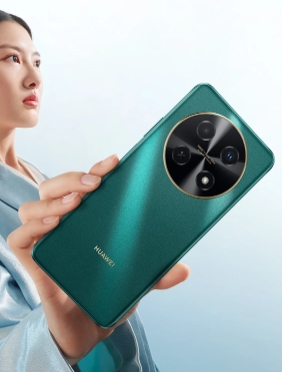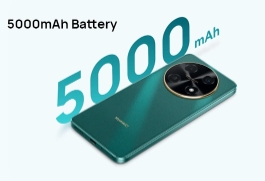
Fast charging has become one of the most sought-after features in smartphones and other electronic devices. In our busy lives, waiting hours for a device to charge can feel like a waste of time. That’s why fast charging has captured the attention of many. However, despite its growing popularity, there are still plenty of myths and misconceptions surrounding the technology. These myths often prevent users from fully benefiting from fast charging. In this article, we’ll take a closer look at these myths and separate fact from fiction, helping you make informed decisions about your devices.

Myth 1: Fast Charging Damages Your Battery
One of the most common myths surrounding fast charging is that it can harm your battery. Many people fear that faster charging speeds will result in overheating or cause long-term damage, shortening the life of their device. But is this really the case?
Why Fast Charging Is Safe with Modern Technology
Fast charging has come a long way in recent years. Thanks to modern technology, charging speeds have increased without causing harm to your device’s battery. Advanced battery management systems (BMS) are now built into most devices, ensuring that the power flow is regulated and optimized for your battery. These systems control how quickly the device charges and prevent overheating by adjusting power levels as needed. For example, the HUAWEI nova 12i supports 40W fast charging through its HUAWEI SuperCharge Turbo feature, which is specifically designed to deliver high-speed charging while keeping the battery safe. With such advanced systems, your device can recharge quickly without putting your battery at risk.

Battery Management Systems and Heat Control
Modern devices are equipped with sophisticated battery management systems that help prevent damage during fast charging. These systems monitor the battery’s temperature and automatically adjust the power input if the battery starts to overheat. Heat is one of the main factors that can damage a battery, but with built-in heat control mechanisms, the risk of overheating is minimized. Additionally, devices like the HUAWEI nova 12i are designed to maintain optimal battery performance by controlling how much power is used during charging. This careful regulation ensures that your device stays safe and charges efficiently without compromising battery health.
Myth 2: You Can Only Use the Official Charger for Fast Charging
Another myth that many users believe is that you can only use the official charger that comes with your device for fast charging. While it’s true that using the right charger is important, it’s not always necessary to rely solely on the official one.
Understanding Compatibility and Universal Charging Standards
Many modern devices support universal charging standards such as USB Power Delivery (PD), which allows for fast charging using compatible third-party chargers. As long as the charger supports the right output specifications, you can safely charge your device without using the official charger. However, it’s important to ensure that the charger and cable are certified and designed to handle fast charging speeds. For instance, using a low-quality or incompatible charger might lead to slower charging times or even damage to the device, so it’s essential to choose a reputable third-party option.
Using Third-Party Chargers and Cables Safely
While it’s possible to use third-party chargers for fast charging, it’s important to use high-quality, certified cables and adapters. Cheap or low-quality third-party chargers might not have the necessary safety features and could overheat or charge your device at a slower rate. Look for chargers that are certified by recognized organizations, and always check reviews before purchasing. By using compatible and trusted third-party chargers, you can enjoy the benefits of fast charging without relying on the official charger.
Myth 3: Fast Charging Will Drain Your Battery Faster
A common misconception is that fast charging will drain your battery more quickly once the charging process is over. Some users fear that after their device has been charged quickly, the battery will discharge faster than usual.
Why Fast Charging Doesn’t Accelerate Battery Drain
Fast charging does not have any direct effect on how quickly your device’s battery drains after charging. The rate at which your battery drains is primarily determined by the apps you use, the device’s settings, and the battery’s age. Charging your device quickly doesn’t speed up the discharge process once you start using it. In fact, devices that support fast charging often come with optimized power management systems that help extend battery life by regulating power usage and limiting unnecessary background processes.
The Impact of Charging Speed on Battery Performance
The speed at which your device charges doesn’t affect its performance in terms of battery drain. Fast charging simply means that your device is receiving power at a faster rate, but this doesn’t mean the battery will wear out or drain faster when not in use. Instead, proper usage habits, such as avoiding overuse of power-hungry apps and keeping your device’s software up to date, play a more significant role in maintaining battery performance.
Myth 4: Fast Charging Will Shorten Battery Life
Another common myth is that using fast charging regularly will shorten the lifespan of your device’s battery. People often assume that higher charging speeds will lead to faster degradation of battery capacity.
How Fast Charging Affects Battery Longevity
In reality, fast charging does not necessarily shorten the lifespan of your battery. Most modern smartphones and other devices are designed to handle frequent fast charging without causing any long-term damage. The key factor in determining battery longevity is not the charging speed but how well the device manages the charging process. Devices like the HUAWEI nova 12i are equipped with advanced battery technology, such as intelligent charging algorithms, that optimize the charging process to ensure minimal wear and tear on the battery.
Optimizing Battery Health with Smart Charging Practices
To maintain battery health and maximize its lifespan, there are a few simple practices you can follow. For example, try to avoid letting your battery drop to 0% or charging it all the way to 100% regularly. Instead, aim for keeping it between 20% and 80%, as this can help reduce stress on the battery. Additionally, avoid charging your device in hot environments, as excessive heat can harm the battery. By following these smart charging habits, you can ensure that your battery remains healthy for as long as possible, even with regular fast charging.
Myth 5: The More Power, the Faster the Charge
A common misconception about fast charging is that the more power a charger provides, the faster your device will charge. While it’s true that charging power plays a role, it’s not the only factor that affects charging speed.
Why Charging Speed Is Not Just About Power
Charging speed depends on several factors, including the voltage, current, and the capabilities of your device’s charging circuit. Simply increasing the power output of the charger doesn’t automatically result in faster charging. In fact, your device’s charging system has its own limitations and can only accept a certain amount of power at a time. Exceeding these limits won’t make the device charge any faster; it could even cause issues like overheating or damage to the battery.
The Role of Voltage, Current, and Device Limitation
The charging speed is a balance between voltage and current, both of which contribute to how quickly the battery can be charged. Devices are designed to accept specific charging speeds based on their internal components and battery capacity. For example, a device that supports HUAWEI SuperCharge Turbo can safely accept higher charging speeds, allowing it to recharge quickly without causing any harm. However, charging at excessive power levels that exceed the device’s specifications could result in inefficient charging or potential damage to the device.
Conclusion
In conclusion, there are many myths and misconceptions about fast charging that can prevent users from fully utilizing this convenient technology. However, as we’ve seen, fast charging is safe and effective when used with modern devices equipped with smart charging systems. By understanding how fast charging works and following simple best practices, you can safely charge your devices quickly without worrying about damaging your battery or reducing its lifespan. Remember to use compatible chargers and cables, optimize your charging habits, and enjoy the convenience of fast charging in your everyday life.